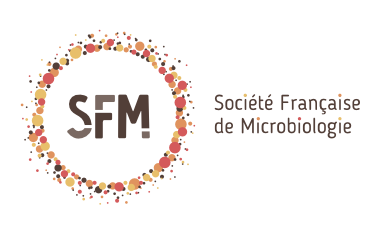Ph.D. Position in Environmental Microbiology at LCPME (University of Lorraine-CNRS, Nancy, France)
Subject: Characterization of the spatiotemporal dynamics of the invasion of river microbial communities by antibiotic resistance determinants
The Laboratory of Physical Chemistry and Microbiology for Materials and the Environment (LCPME – UMR 7564 CNRS-University of Lorraine) is opening a 3-year Ph.D. position to study the invasion of river resident microbial communities (river biofilms) by antimicrobial resistance genes. The starting date is planned for October 2023 and the annual gross salary is approximately € 2044 €/month.
Project:
In 2019, antibiotic resistance was directly responsible for 1.27 million deaths worldwide, making antibiotic resistance one of the highest threats for human health, food security and development. The ever-increasing occurrence of antibiotic resistance relies on two pillars: the selection of resistant bacteria during antibiotic therapy and the dissemination of such resistant bacteria and their resistance genes. The dissemination of antibiotic resistances does not solely involve direct human-to-human transmission. Since the human, animal, and environmental spheres are interconnected, the environment can act as a transmission belt for antibiotic resistance dissemination, because it is both contaminated by anthropogenic activities and a source of exposition for human/animal. This project aims to explore how antibiotic resistance genes invade river ecosystems, with a particular attention paid on (i) the relationship between local anthropic pressures and invasion by antibiotic resistance, (ii) the role of river biofilms in the diffusion of antibiotic resistances, (iii) the relationship between diversity and antibiotic resistance diffusion, and (iv) the reversibility of the invasion process.
The project will be organized in three interconnected parts. The first part will be dedicated to the fine mapping of antibiotic resistance determinants (HT-qPCR) in resident microbial communities (characterized by the metabarcoding of 16S rRNA genes) in a first-order river exhibiting a strong invasion of resistance genes as soon as the first anthropogenic activities are observed. This part will also include a precise evaluation of the anthropic activities in the area. The second part will focus on the invasion dynamics of antibiotic resistance genes in river biofilms. Special attention will be given to the role of biofilm composition and maturity during the invasion process, and to the reversibility of the phenomenon when anthropic pressure ceases. The final part of the project will be conducted ex situ in reactor settings to study and characterize independently the succession of events leading to the invasion of naive communities by antibiotic resistant genes, from mass transfer (bulk to biofilm) to horizontal gene transfer of specific mobile genetic elements.
Profile:
The successful candidate should have a solid background in microbiology and molecular biology and demonstrate a strong interest in environmental research. Experience in environmental microbiology and bioinformatics will be favorably considered.
Contact:
Motivated candidates should submit a detailed curriculum vitae and motivation letter to Christophe Merlin and Frédérique Changey by 7/07/2023 and expect an interview the following week. The retained candidate will then be interviewed later on by the Doctoral School BioSE for a final decision. For further information or applications contact both Christophe Merlin (christophe.merlin@univ-lorraine.fr, Tel.: +33 (0)3 72 74 72 40) and Frédérique Changey (frederique.changey@univ-lorraine.fr, +33 (0)3 72 74 72 92).





